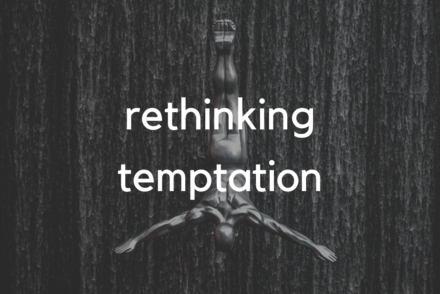Last year Threshingfloor formalized what we call our “key practices” – activities that we believe, when done consistently, will have significant impact in moving people towards being disciples of Jesus who make disciples of Jesus.
Key practices aren’t just for organizations. They’re essential for our own personal life and growth as humans and disciples of Jesus. “You are what you repeatedly do,” wrote historian and philosopher Will Durant when summarizing some of Aristotle’s teaching. While that statement isn’t absolutely true – I’d argue that we are who God says we are – what we repeatedly do significantly shapes us.
A couple days ago I took some time to examine my own life, searching for the key practices or habits that I have – things I repeatedly do – that keep me on track in growth and faith. It was a helpful exercise to put these things down in writing and distill them as much as possible. Here are my personal key practices:
Starting the day in Word
Within Threshingfloor we identified “Soak” as a key practice. I start each day (even most weekend mornings) by getting up around 6AM and spending 30 minutes or so being in God’s presence through prayer and reading Scripture. And I believe the starting the day piece is key to this being powerful. What I feed my mind and heart at the outset of the day shapes how I function for the next 16 or so hours until I go to bed. I make a practice of reading through the Bible at least once each year, so I’m currently reading a Psalm and the book of Joshua.
Structured Prayer
I’ve found intentional structure in my prayer life frees me up to pray more easily and naturally than I would if I didn’t have any structure. Most mornings before I read scripture I take 10 minutes to pray following a modified version of the ACTS (Adoration, Confession, Thanksgiving, Supplication) model that I learned in my teams. I’ve modified it to CASTL, with the L standing for Listening. Prayer isn’t a monologue at God – it’s a conversation. Realistically, my time in prayer looks more like LALCLTLSL, with space for listening throughout the time, but CASTL is a lot easier to remember.
frees me up to pray more easily and naturally than I would if I didn’t have any structure. Most mornings before I read scripture I take 10 minutes to pray following a modified version of the ACTS (Adoration, Confession, Thanksgiving, Supplication) model that I learned in my teams. I’ve modified it to CASTL, with the L standing for Listening. Prayer isn’t a monologue at God – it’s a conversation. Realistically, my time in prayer looks more like LALCLTLSL, with space for listening throughout the time, but CASTL is a lot easier to remember.
Morning exercise and stretching
Soul care and body care, in my opinion, go together. You won’t have a truly healthy body if your soul isn’t cared for, and vice versa. I exercise and stretch for 30 minutes or so 3-4 days a week. Nothing super intense or time consuming, since having two kids under the age of three limits my free time, but it’s enough to keep me fairly in shape and keep my energy levels up.
Cooking and eating meals together
We make a regular practice of cooking meals at home, probably 6 evenings a week, and eating together as a family. There are often others who are invited to join in, whether it be our Threshingfloor community, other friends, neighbors, or someone else. Home cooked meals are more healthy and less expensive than dining out, and eating together creates space for conversation and connection that wouldn’t otherwise be present.
Writing
Writing serves as a practice of discipline, a creative outlet, and a means of clarifying my thoughts. I write for at least 45 minutes each day, whether it be this blog, a novel I’m working on, or something for elementum or Threshingfloor.
Replacing negative thoughts with thankfulness
For the last three or four years I’ve made it a practice to respond to any negative thoughts about anyone, especially those who are closest to me, by pushing myself to list at least two things about them I’m thankful for. If Kelly does something that bothers me and I state that consciously in my head, I’m going to immediately consciously list two things about her I’m thankful for.
Sabbath and nights off
The practice of taking time off of working is crucial for sustaining long term, particularly with the eternal demand of more to be done in the ministry world. I’m committed to consistently having at least two nights of the week where I’m fully present with my family and at least one full day a week that we’re not focused on getting things done. Not an easy thing to achieve, but well worth the probably two years that it took Kelly and I to get in that groove.
Reading widely
Last year I read 100 books. This year I’m on track for 75. But the quantity doesn’t matter as much as the quality and the breadth. I’m committed to reading at least a few books each year that are outside of my normal field of interest, a few that directly contradict what I think, and a few that are above my intellectual level. This wide-ranging reading gives me new insights and enables connections with ideas that I wouldn’t otherwise encounter.
Connecting with community
Whether it’s hosting out Threshingfloor community in our home, having some guys over on an evening when Kelly’s out of town like she will be this weekend, or going outside to chat with the neighbors when they’re out on a (rare) nice winter day, I make sure to practice connecting with others consistently.
Those are the key practices that I believe have been most essential in my life over the last decade or so. Through each of them I’ve grown, learned, and gained skills that I wouldn’t have otherwise Though they may change slightly over the coming years, I’m confident that each one is a practice that I will carry with me through my lifetime.
What key practices do you see in your life? What do you repeatedly do that helps keep you on track?




No Comments